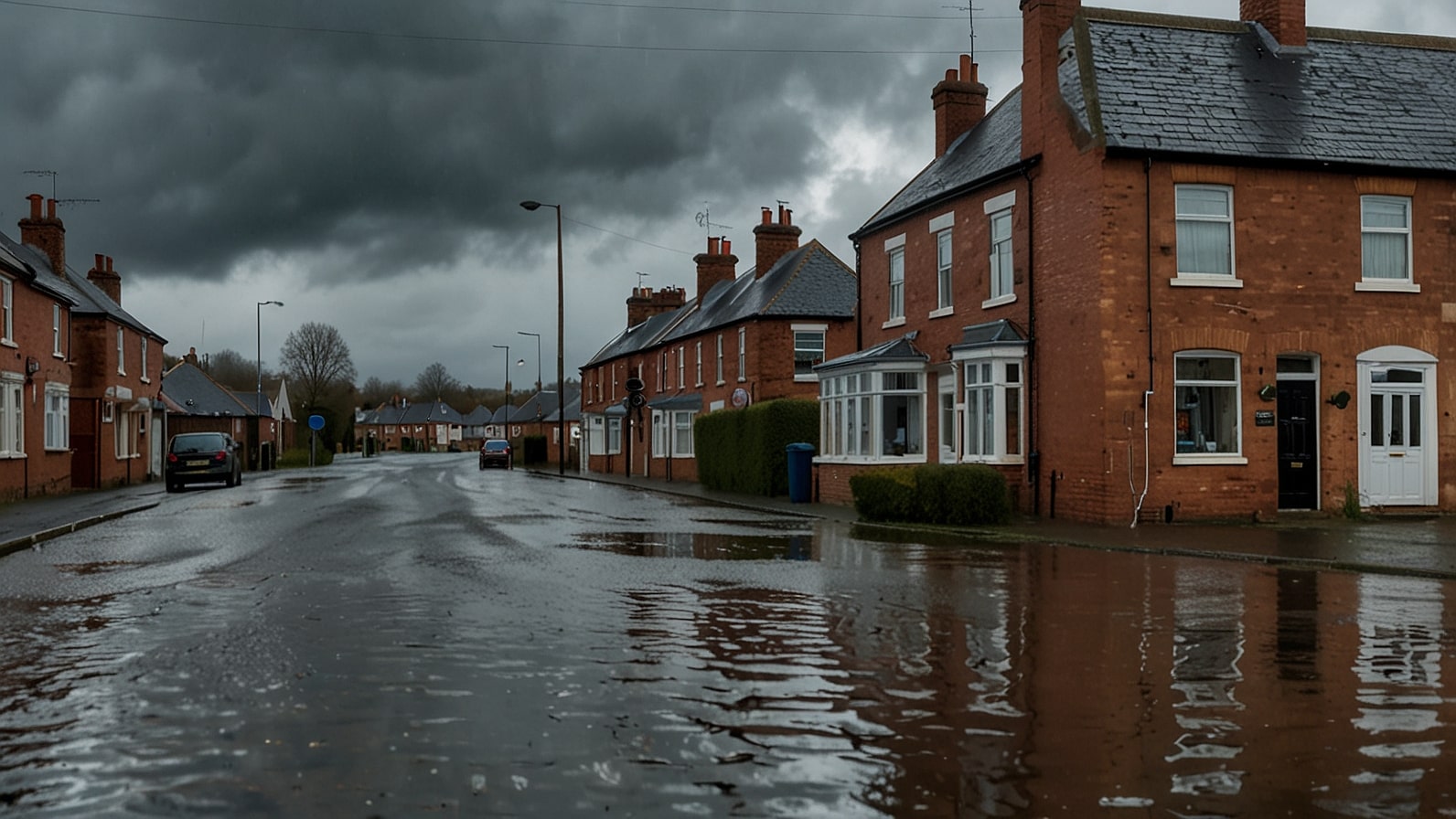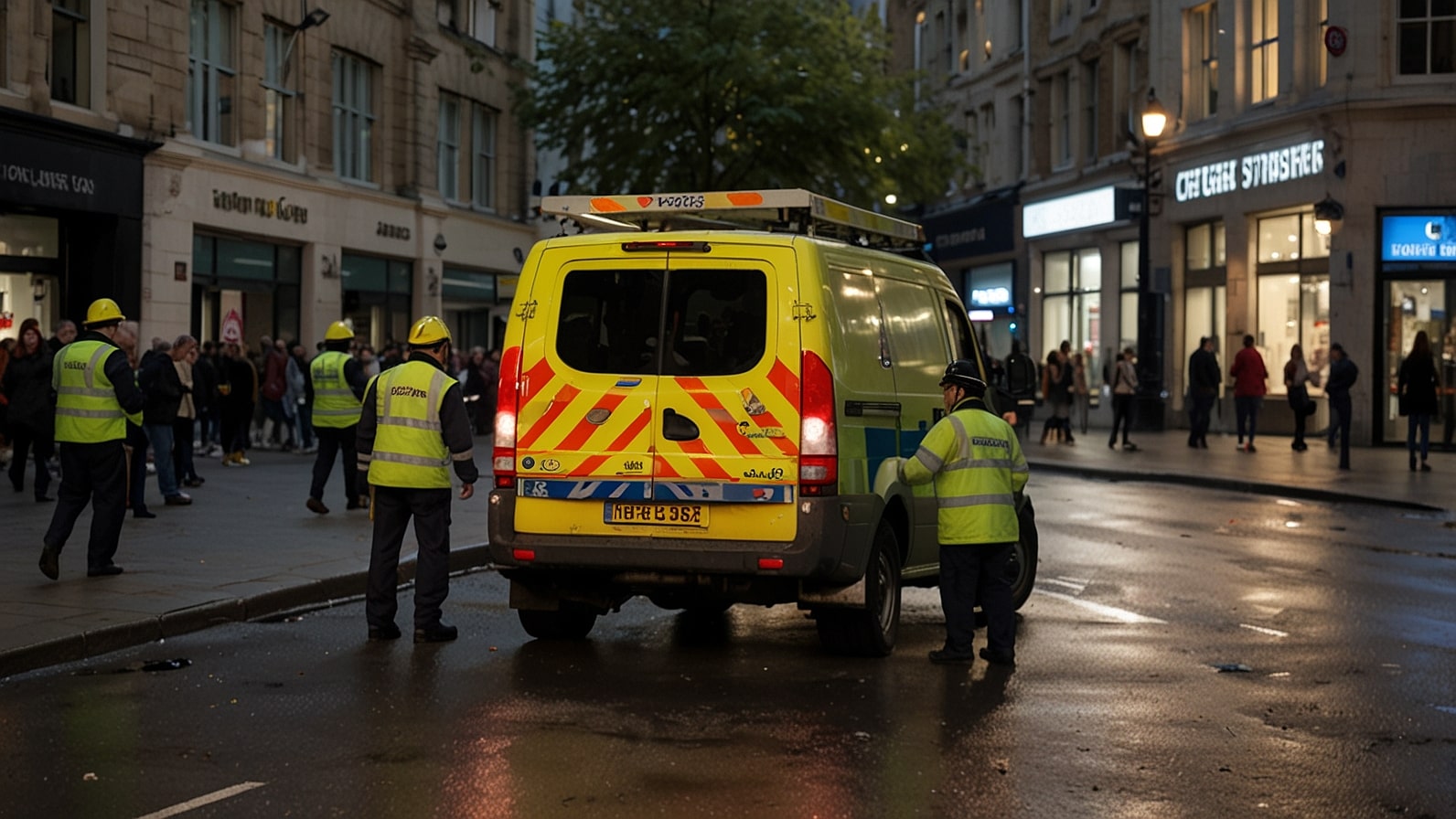Storm Floris brought with it intense winds and torrential downpours across England, Scotland, Wales, and Northern Ireland as the United Kingdom prepared itself to weather the storm.
The Met Office has given the storm a name, and has issued a yellow weather warning between 06:00 Monday and 06:00 Tuesday, which indicates that during the storm, there will be severe disturbances that may disrupt their everyday life.
With the country still reeling following the disaster, tales of survival and readiness of the people, and showcasing the capacity of the country to endure the storm, both literally and figuratively, are being told.
An Invasion of Brutes
The storm Floris hit land on early Monday mornings, reporting wind gusts of up to seventy mph along the coastlines and a massive volume of rainfall recorded around lowland areas, resulting in the weather causing a flash flood.
According to reports by the Met Office, the north of England and Scotland received 100mm of rainfall within 24 hours, equivalent to the amount recorded in parts of the country and Scotland over a month.
The severity of the storm had taken many men by surprise, as storms of this magnitude are not seen too much during the summer. The streets became rivers, and the transport system became paralyzed, and tens of thousands of households lost electricity, especially in rural settlements.
In London, rail travellers faced a nightmare when major train lines, including the Southern and Thameslink lines, were brought to a standstill due to fallen trees and submerged tracks.
The M25 motorway was plagued by severe traffic jams due to numerous road accidents caused by slick surfaces. The surging waves swept the seafront in coastal towns such as Brighton and Blackpool, where local officials closed promenades and advised people to stay away. The Environment Agency has put 12 flood warnings and 35 flood alerts in England, and residents are urged to protect their properties and travel unnecessarily.
Societies in Distress
The number of human lives lost during Storm Floris has been dramatic. The case of a family of four closely evading disaster (having to go into the homes of neighbours after their home was flooded) can be experienced in Cumbria. According to Sarah Thompson, a resident, the water was so fast that there was no time to save any valuables: It is so sad to see our house destroyed, but we are lucky to be safe.
In Yorkshire, there were similar tales of flood-scattered communities like Hebden Bridge being put to the test once more, after the damage of earlier floods. Daycare centers were used as emergency housing facilities, where hot meals and blankets were distributed to homeless people.
The effects of the storm were worst in the Highlands in Scotland, where landslides had disrupted major roads such as the A82. Debris was cleared up, and emergency services went out of their way to help the stranded motorists.
In Glasgow, a heritage site in the city centre has been structurally damaged as high winds ripped off the roof, leaving debris in the surrounding streets. Officials said no deaths occurred, but there were minor injuries across the board, with patients being treated for hypothermia and injuries caused by falling trees.
Economic and Environmental Disagreement
Storm Floris is likely to have a big economic influence. Initial assessment indicates the damages may amount to the tens of millions of pounds with small firms, especially those in the coastal areas, which depend highly on tourism industries, topping the list of the victims.
Restaurants and hotels in Cornwall and Devon were also cancelling bookings as the holidaymakers sought to avoid travel in the storm. With storm-chasing weather that had always been a nightmare to farmers, the crops and livestock were lost in flooded fields.
There are also environmental issues that have emerged. Ecologists pointed out that intense precipitation would further cause soil erosion and river pollution by urban effluents.
The National Trust said it had sustained damage to many historic properties, including gardens and woodland, where ancient specimen trees had been uprooted. Research is ongoing to determine ecological damage and the areas where the restoration needs to be implemented. Still, the experts warn that it might take several years before the coral reefs can be restored.
Responses of a Nation
The resilience and solidarity have developed despite the chaos. In Bristol, people were mobilized to create sandbags to safeguard unsafe properties, whereas in Manchester, local companies gave masks to the casualties.
The emergency services, such as fire brigades and the RNLI, were praised for their prompt actions, with coastguard teams coming to the islands of the Isle of Wight to save a group of sailors who were caught in the rough seas.
Prime Minister Keir Starmer has issued a statement congratulating the exceptional community spirit that has been witnessed as people pulled together, and he promised the help of the government to the official recovery efforts.
The Environment Agency and The Met Office have had to answer some tough questions as to whether they issued warnings in time, with some locals saying that they were barely allowed any time to prepare. The spokesperson of the Met Office defended their response by saying that it was tough to forecast a rapid increase in the intensity of Storm Floris.
To better prepare for future extreme weather events, the government has promised a review of preparedness measures, as extreme weather events have become the top concern regarding the impact of climate change, which causes increased frequency and severe forms of such events.
Looking Ahead
The development of Storm Floris is moving eastward, leaving a path of havoc behind, and now the focus is on restoration. Companies are working to restore electricity, and it is hoped that most disruptions will return to normal by the middle of this week.
Train operators have vowed to reopen as soon as their safety audits are finished, though there are chances of delays. The cleanup is being coordinated by the local councils, and volunteers and military staff are helping the most devastated areas.
It was also the storm that has once again fuelled the controversy over how resilient the UK is to infrastructure. The scholars believe that the damage was also amplified by the fact that the current drainage systems were outdated and flood protection strategies were inadequate.
The voices demanding a stronger focus on investments in climate adaptation are becoming louder as environmental activists insist on the government focusing on the need to pursue sustainable measures. At the moment, the UK is a unified country, gathering the leftovers and preparing for whatever nature has in store for them next.



